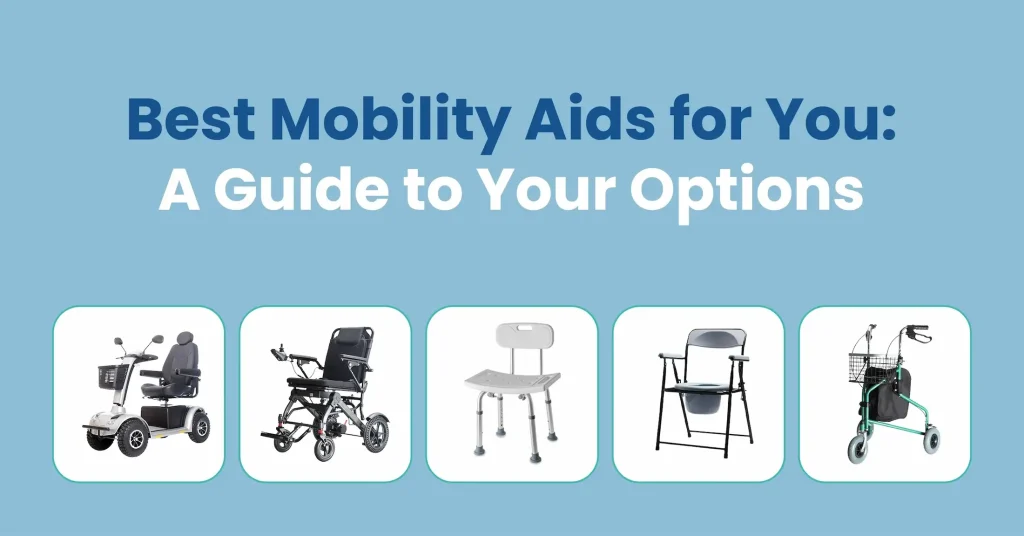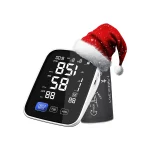Imagine walking through your home with confidence. Picture moving through your day without fear. This is the gift of the right mobility aids. It is not about limitation. It is about liberation.
For seniors and people with disabilities, movement can be hard. A simple walk can feel risky. Recovery from an injury can seem long. But the right mobility aids in the shape of support can change everything. This guide will help you find it. We will explore the best tools to improve your mobility and recovery. Let’s find the key to your independence together.
Why Staying Mobile is Everything
Moving freely is vital for a good life. It keeps your body strong. It keeps your mind sharp. The right mobility aids keeps you safe from falls. It reduces your pain. It saves your energy for the things you love. These tools are a simple way to protect your freedom.

A Guide to Different Mobility Aids
Many types of mobility aids exist. Each one is specified for a different kind of help. Your choice must depends on your specific need.
1. Canes: For a Little Help
Canes are perfect for small balance problems. They are the most common walking aids.
Standard Canes: These are simple canes with one tip. Also, they are good for light support.
Quad Canes: These canes have a four-point base. They offer much more stability. They are great for recovery after surgery.
2. Walkers: For Strong Support
Walkers provide a sturdy frame to hold onto. They are trusted senior mobility aids.
Standard Walkers: These have no wheels. You must lift them to move. They give you the most stability.
Rollators: These walkers have wheels. They also have brakes, a seat, and a basket. They are perfect if you get tired but still want to walk.
3. Wheelchairs: For Full Support
Wheelchairs are essential disability mobility aids. They help if walking is too hard or tiring.
Manual Wheelchairs: You need arm strength to move these. Or someone can push you.
Power Wheelchairs: These chairs have a motor. You control them with a joystick. They are ideal for people with limited strength.
How to Choose Your Mobility Aids
| Mobility Aid | Who Benefits | Examples | Key Benefits |
|---|---|---|---|
| Walking Aids | Seniors with balance issues | Canes, walking sticks | Light, simple, improves balance |
| Walkers & Rollators | Elderly needing more support | Standard walker, rollator with seat | Stability, rest breaks, safe mobility |
| Wheelchairs & Scooters | Limited or no walking ability | Manual wheelchairs, mobility scooters | Full independence indoors and outdoors |
| Bathroom Mobility Aids | Seniors at risk in bathrooms | Grab bars, shower chairs | Prevents slips and accidents |
| Adaptive Equipment | Difficulty with daily tasks | Reachers, dressing sticks, utensils | Independence in eating, dressing, reaching |
The bathroom is the unsafe room in the house. It is slippery and hard to navigate. Bathroom mobility aids prevent accidents.
Shower Chairs: Let you sit down while you shower. No more standing on wet floors.
Grab Bars: Give you something strong to hold onto. Fix them inside the toilet and shower. Also near the unsafe area like stairs and slippery area.
Raised Toilet Seats: One of the best solution. It makes sitting down and standing up much easier.
Non-Slip Mats: Use them over slippery surface. They stop your feet from sliding.
Your Bathroom Safety Shopping List:
| Category | Product | Primary Purpose | Key Features to Look For |
|---|---|---|---|
| Support & Stability | Grab Bars | Provides steady support when entering/exiting the shower, bathtub, or toilet. Prevents slips and falls. | – Weight capacity (250+ lbs minimum)- Suction vs. wall-mounted: permanent wall-mounted into studs are safest- Textured grip for wet conditions- Comfortable length and diameter |
| Shower Chair or Bench | Allows safe sitting while showering, reducing fatigue and fall risk. | – Height-adjustable legs- Backrest for support- Lightweight, rust-proof frame (aluminum)- Padded seat for comfort | |
| Transfer Bench | Lets you sit outside the tub and slide safely across into the shower, avoiding high step over the tub wall. | – Adjustable width- Independent adjustable legs for stability- Optional swiveling seat for easier transfers | |
| Toilet Safety | Raised Toilet Seat | Raises toilet height for easier sitting and standing. | – Available in 3″, 4″, or 5″ raise- Optional built-in armrests- Secure locking mechanism to prevent shifting |
| Toilet Safety Frame | Provides sturdy armrests on both sides of the toilet for support. | – Stand-alone frame fits around existing toilet- Adjustable width and height- Non-slip feet | |
| Floor & Surface Safety | Non-Slip Bath Mat | Adds traction on wet bathroom floors to prevent slips. | – Waterproof backing- Drain-through design for quick drying- Machine washable |
| Bathtub & Shower Traction Mats/Strips | Creates a non-slip surface inside tubs or showers. | – Self-adhesive or suction cups- Abrasive, textured surface- Mildew-resistant material | |
| Accessibility | Handheld Showerhead | Allows seated showering with flexible water direction. | – Long hose (5–6 feet)- Slide bar for easy height adjustment- Lightweight, easy-grip handle |
| Tap Turners & Lever Handles | Makes faucet use easier for people with limited strength or arthritis. | – Lever-style handles easier than knobs- Covers that fit over existing round knobs |
Of course. Here is a bathroom safety shopping list presented in a table, framed under your requested title.
Everyone worries about cost. You can find cheap mobility aids that are still safe and reliable.
Ask Your Insurance: Health insurance or Medicare often helps pay. This is true if your doctor says you need the equipment.
Rent First: Need something after surgery? Renting medical aids is a smart choice.
Trust Good Brands: Buy from companies that specialize in daily living aids. Their products are safer and last longer.
Your Next Step:
Choosing a mobility aid is a powerful decision. It is about choosing safety. It is about choosing freedom. The best aid is the one that fits your life and makes you feel secure.
Please talk to your doctor or a physical therapist. They will give you personal advice. They can make sure your device is the right type and size. A good fit is everything.
See these tools as helpers. They are your partners in a more independent life. They help you stay active and connected to your world.
Take that first step. The right mobility aid is waiting to help you reclaim your freedom.
FAQ’s
1. What exactly are these devices?
They’re practical tools. They simplify everyday tasks and boost safety.
2. Will a cane solve my balance issues?
It might. But a walker offers far more stability if you often feel unsteady.
3. What’s the top bathroom safety upgrade?
Real grab bars. Those suction cup versions can fail. Get bars screwed securely into the wall.
4. Are rollators better than basic walkers?
They offer more freedom. You get a seat to rest and wheels that glide. But you need good brake control.
5. Where can I find affordable options?
Check medical supply stores online. Also, local community loan closets often rent equipment for free.
6. What if I only need help getting dressed?
Small tools exist. Think reacher grabbers, sock aids, and button hooks. They preserve independence.
7. Is a shower chair necessary?
If standing tires you or feels risky, absolutely. It prevents slips and saves energy.
8. What’s the biggest mistake people make?
Using a device that’s the wrong height. It causes poor posture and more falls.
9. Can I use a wheelchair for outings?
Of course. Transport chairs are lightweight. They are perfect for museums, airports, or long walks.
10. When should I replace my walker?
Inspect the rubber tips regularly. Replace them when they look worn or feel slick.
11. Will these tools make me look old?
They project smartness. Using the right aid shows you value your safety and independence.


